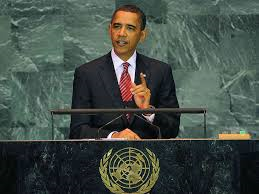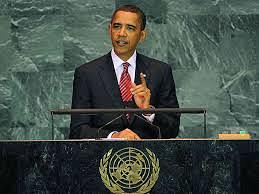Iran wants South Asia free from US forces
1. US agenda in Afghanistan, region
Obviously, Americans are the real protectors Mideast or South Asia, not do have any interest in sincerely helping the humanity.
They are interested in their so-called national interests they work for protecting them by using nations in every region.
Upon the fall of Soviet Russia, USA became the sole super power with unlimited arms and powers, seeking military supremacy and total allegiance of all world powers to USA.
USA has now come to control even the far off Silk Road in South Asia by tactfully using the Sept-11 hoax and Pakistani general Pervez Musharraf to invade Afghanistan and Pakistan.
Now the Pentagon and its western allies are well settled in both destabilized Muslim nations by controlling the regimes there in these countries. .
The superpower USA is eager to continue to control the region and therefore has never been honest in information transformation with Afghanistan. is pressing Karzai to sign a deal to extend its military presence past 2014, when NATO and United Nations mandates expire and all foreign troops leave the country.
Iran is increasing ties with its neighbor Afghanistan. Afghan President Hamid Karzai is currently in Afghanistan for talks with Iran's leaders. .
Annoyed with continued US military presence in Afghanistan and Pakistan, destabilizing the region, Iran wants South Asia free from US forces.
Iran has long opposed any planned agreement to allow US forces to remain stationed on its doorstep in neighboring Afghanistan. The two countries have about 945 kilometers (580 miles) of common borders.
Iran believes that countries of the Gulf are capable of managing security through regional security pacts. Americans should not worry too much about the security of South Asia and Persian Gulf.
Iran's President Hassan Rouhani said on 08 December that his country opposes the presence of foreign forces in Afghanistan and the region, saying their presence generates tension.
Rouhani said Iran opposes any foreign forces in the region, the Middle East and the Persian Gulf, where the US Navy's Fifth Fleet has a base in the tiny kingdom of Bahrain.
Rouhani therefore asked foreign forces out of Afghanistan as early as possible. Rouhani reportedly asked the visiting Afghan President Hamid Karzai to let the foreign military forces to leave the lands of Afghans. so that people can take full control over its security and economic prosperity: "We are concerned about tensions caused by foreign forces' presence in the region. We believe that all foreign forces should leave the region and that the security of Afghanistan should be handed over to people of the country." He also called for more cooperation between Tehran and Kabul. Karzai left Tehran soon after meeting Rouhani and his Foreign Minister Mohammad Javad Zarif.
Iran sees its role in promoting a peaceful region around it.
2. Iran-Afghanistan relations
Afghan President Hamid Karzai arrived in Iran for talks on 08th December amid disagreement with the United States over a security accord that would allow some NATO forces to stay in Afghanistan. The proposed deal allowing NATO troops to operate in Afghanistan after 2014 will be discussed during the talks.
Karzai meets President Hassan Rouhani -- for the second time in four months in Tehran -- and Foreign Minister Mohammad Javad Zarif.
Iran's position on the BSA is that it would not serve the interests of its eastern neighbour. "Iran does not see the signing and ratifying of this security pact to be beneficial for the long-term interests of the people and government of Afghanistan..
Iran strongly backs Karzai's stance in refusing to sign the deal. Afghan President Hamid Karzai visited Iran straight after an awkward visit to Kabul by US Defence Secretary Chuck Hagel. To the growing dismay of Washington, Karzai has been refusing to sign a deal allowing NATO troops to stay in Afghanistan beyond next year, a position strongly backed by Iran. Hagel flew into Kabul on 07 December amid disagreement over whether he would even meet the Afghan president in the face of the security pact row. US officials said no meeting was scheduled right now.
Iran has long opposed NATO's presence in Afghanistan and is the only country to have asked Karzai not to sign the agreement. Rouhani reinforced that message after meeting Karzai. "All foreign troops should be withdrawn from the region, the) security of Afghanistan should be entrusted to the Afghan people."
Afghan President Hamid Karzai agreed on a long term cooperation pact with Iran , an Afghan official said, while continuing to resist signing a long-term security agreement with the USA.
The pact will be for long-term political, security, economic and cultural cooperation, regional peace and security. Karzai struck the deal with Iranian President Hassan Rouhani in Tehran in a move that will be greeted with suspicion by his U.S. ally, which is trying to convince him to sign the security accord governing any post-2014 U.S. presence in Afghanistan. He said a formal document would be prepared and signed soon.
In August Afghanistan signed a strategic cooperation pact with Iran covering mainly security issues, but the proposed new agreement would have much broader scope.
Many Afghans believe such a bargain with Iran, at odds with the United States since the 1979 Islamic revolution, may harm Afghanistan's uneasy relationship with its Western allies.
Karzai trip to Tehran comes a day after an awkward visit to Kabul by US Defence Secretary Chuck Hagel amid growing disagreement with the Afghan president over the long-delayed security accord. Hagel did not meet Karzai, which would have been customary for a Pentagon chief, saying that Kabul was already aware of the US position.
3. US-Afghanistan row
With a view to prolonging the illegal military stay plus terror operations in Afghanistan, USA and its allies have appealed to Karzai to sign the Bilateral Security Agreement (BSA), which lays out the rules for US and other NATO troops to operate in the country after 2014 on a mission focused on training, and countering Al-Qaeda-linked extremists.
Washington and its allies have appealed to Karzai to sign the Bilateral Security Agreement (BSA). This lays out the rules for US and other NATO troops to operate in the country after 2014 on a mission focused on training, and countering Al-Qaeda-linked extremists.
The US bilateral security pact is a decade-long agreement that would provide a legal basis for about 8,000 U.S. troops to stay on after the NATO-led combat mission ends next year. The new security agreement sets the legal conditions to permit roughly 12,000 NATO troops -- mostly American -- to remain in Afghanistan.
Karzai initially endorsed the BSA, but has since refused to sign it and issued fresh demands. Its future was thrown into doubt last month when Karzai said he would sign only if new conditions were met, and then only after Afghanistan's elections in April.
The United States has made its position on the BSA clear. And just two days ago, President Karzai repeated his position to senior US officials that he is not yet ready to sign the BSA and provided no timeline or practical step for doing so.
Iran voiced criticism of the proposed US pact, saying it would not serve the interests of its eastern neighbour. Tehran does not see the signing and ratifying of this security pact to be beneficial for the long-term interests of the people and government of Afghanistan.
However, in order to quell tension with USA and its allies, Iran signed an interim agreement with USA over its nuclear plan with world powers last month. Rouhani has been trying to convince chronic skeptics abroad and hard-liners at home that the move was not compromising on key issues of national sovereignty.
Israel has repeatedly criticized the US-Iran deal and called it a "historic mistake", saying economic sanctions must be toughened, not eased. Iran's Defense Minister Gen. Hosein Dehghan called the remarks by Israeli and American counterparts "threatening," adding that they pave the ground for mistrust toward the US while revealing the influence of Israel — Iran's arch enemy — on Washington.
Meanwhile, US Defense Secretary Chuck Hagel laid out steps to beef up defense cooperation between states within the Gulf region, while at the same time insisting that America's military commitment to the Middle East will continue. In a speech to Gulf leaders he also made it clear that the emerging global agreement that would limit Iran's nuclear program doesn't mean the security threat from that Islamic republic is over.

د. عبد راف
-BY DR. ABDUL RUFF COLACHAL has been an educationist, Columnist-Commentator on world affairs Expert on Mideast Affairs, Chronicler of Foreign occupations & Freedom movements (Palestine, Kashmir, Iraq, Afghanistan, Pakistan, Xinjiang, Chechnya, etc.) Chancellor-Founder of Centor for International Affairs(CIA); Former university Teacher; Editor:INTERNATIONAL OPINION; FOREIGN POLICY ISSUES; Author of books;website: http://abdulruff.wordpress.com/ mail: abdulruff_jnu@yahoo.com/Phone: 91-8129081217---(Account: No 62310377429 - CIF No: 78215311481- State Bank of Hyderabad, India)
Comments
There are 0 comments on this post













